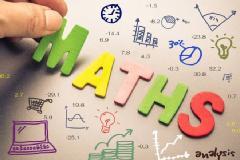Learning statistics is crucial in today's data-driven world for several compelling reasons. Firstly, it enables informed decision-making by allowing individuals to analyze, interpret, and present data accurately. This skill is essential across various fields, including healthcare, business, technology, and social sciences, where data plays a pivotal role in shaping strategies and outcomes.
Secondly, statistics foster critical thinking and analytical skills. By understanding statistical methods, individuals can evaluate the validity of data and research findings, helping them to make reasoned judgments rather than relying on assumptions or incomplete information. This ability is vital in discerning credible information in an age of information overload.
Thirdly, statistical knowledge is foundational for scientific research. It provides the tools necessary to design robust experiments, test hypotheses, and validate results, ensuring that conclusions drawn from research are reliable and replicable.
Moreover, with the exponential growth of big data and advancements in artificial intelligence, statistical literacy is becoming increasingly valuable in the job market. Careers in data science, analytics, and related fields demand a strong grasp of statistics, making it a key competency for professional growth.
Ultimately, learning statistics equips individuals to navigate a complex, data-centric world, enhancing both their professional opportunities and personal decision-making abilities.







